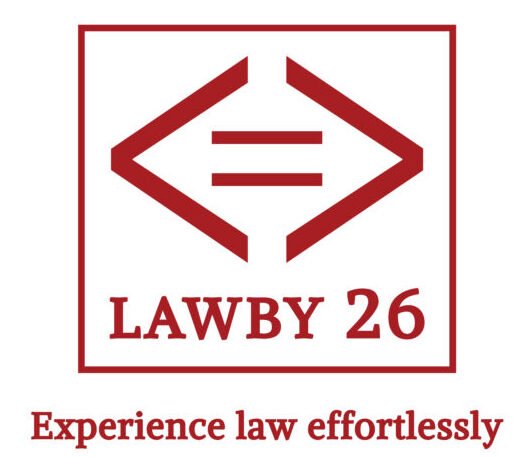Introduction
In the Indian legal system, the threads of justice are knitted with the principles of professional ethics. As members of the legal community, lawyers have a duty to respect not only the law but also the fundamental ethical principles that underpin their profession, such as telling the truth, treating everyone fairly, and protecting client privacy. These guidelines assist lawyers in doing their duties while ensuring that they are doing the right things in the correct way.
Let’s examine these rules in more detail through The Advocates Act of 1961 which establishes professional conduct requirements for attorneys and also authorizes the Bar Council of India (BCI) to make regulations prescribing the professional behavior required of advocates practicing in India as well as Seven Lamps of Advocacy which serves as a informal guide for attorneys to preserve their ethical conduct in this noble profession.
The Advocates Act, 1961
The Advocates Act of 1961 is a statute that consolidates and amends rules pertaining to legal practitioners in India. Section 29(1)(c) of the Advocates Act, 1961 specifies the professional standards that advocates must follow under Chapter II, Part VI of the Bar Council of India.
The Act specifies the obligations of advocates to the Court, Client, Opponents, and other advocates, as well as their rights which I have tried to condense those duties into a succinct but accurate summary here:
Rules on Advocate’s Duty towards the Court
- Advocates must maintain self-respect and dignity while presenting their cases. If there are legitimate grievances against a judicial officer, they have the right and duty to report them to the proper authorities.
- Advocates must show respect towards the court, understanding that the dignity of the judicial office is crucial for a free society.
- Advocates cannot use illegal means to influence court decisions. Private communications with judges about ongoing cases are strictly prohibited.
- Advocates should discourage their clients from using unfair tactics in court.
- Advocates must follow the prescribed dress code when appearing in court
- Advocates cannot engage in legal matters where specified familial relationships exist between them, ensuring no bias
- Utilizing gowns or bands in public places outside court is prohibited.
- Advocates who hold positions in the executive committees of organizations are restricted from representing those entities in legal matters.
Rules on Advocate’s Duty towards the Client
- Advocates must accept cases within their practice areas at a suitable fee. In specific circumstances, they may refuse a case.
- Once committed to a case, an advocate should not withdraw without a valid reason, providing adequate notice to the client. If they do withdraw, any unearned part of the fee should be refunded.
- Full disclosure of connections and interests affecting the case’s judgment should be made to the client.
- Advocates must defend their clients honorably and avoid fostering unnecessary litigation.
- Advocates are required to keep an account of the money the client has entrusted to them
- After a case, any remaining funds can contribute to the advocate’s fee. If fees are unsettled, they can deduct the appropriate fee and refund the balance to the client.
Duties of an Advocate towards Fellow Advocates
- An Advocate must avoid publicizing his job through circulars, ads, and other means.
- The Signboard and Nameplate must be of fair size and contain no indication of the advocate being President or Member of a Bar Council or having been a judge or the advocate being a member of any affiliation
- If a colleague advocate has previously submitted a vakalatnama or note, the advocate shall not represent the same case unless the fellow advocate has approved.
- When a client can pay more, an advocate must not use his name to promote unauthorized practice of law and must not take a charge less than the amount.
Duties of an Advocate towards opponents
- Prohibition of direct negotiation with the opposing party
- Fulfilling legitimate promises made[1]
Seven Lamps Of Advocacy
The book “Seven Lamps of Advocacy” coined by Judge Edward Abbot Parry outlines seven essential qualities for advocates:
- COURAGE – Advocacy demands bravery in facing courtroom battles and societal issues.
- WIT- for example: During a trial, an advocate encounters an unexpected legal loophole that weakens their case. Utilizing quick thinking and clever reasoning, the advocate can skillfully redirect the argument, turning a setback into an advantage
- INDUSTRY – Hard work and skill are crucial; ignorance of the law can be detrimental to both the advocate and their clients
- HONESTY- Integrity must underpin all actions, reflecting in work, conduct, and transparency with clients, earning trust and reliability
- FELLOWSHIP- Maintaining respect and camaraderie with fellow advocates is vital, fostering a positive attitude despite adversities.
- JUDGEMENT- Sound reasoning and anticipation are crucial for interpreting laws, strategizing arguments, and providing accurate legal counsel
- ELOQUENCE- Effective oratory skills, honed through practice and education, are essential for advocates to persuade judges and positively impact cases[2]
Case laws that underscore the importance of maintaining professional ethics
High stakes for advocates’ professional behavior
Mahipal Singh Rana v. State of U.P.(2016) 8 SCC 335
Facts: The case involved Mahipal Singh Rana, an advocate, who faced allegations of contempt such as using foul language and inappropriate conduct on specific dates. The Allahabad High Court convicted Rana of contempt based on these allegations.
Issues: Whether Rana could continue practicing as an advocate after the conviction and if there were any reason to overturn the High Court’s decision convicting Rana for contempt.
Judgment: The Bar Council of India emphasized that even minor offenses by advocates could be considered moral turpitude, and advocates’ conduct should align with the profession’s high standards.
The Supreme Court upheld Rana’s conviction and emphasized that in case of the Bar Council’s failure to act against misconduct, the Supreme Court can intervene under Section 38 of the Advocates Act.
Rana’s enrollment as an advocate was suspended for 2 years under Section 24A, with an additional 5-year suspension of his license.[3]
Withholding information violates the client’s right to know about the case.
R.D. Saxena v. Balaram Prasad Sharma, AIR 2000 SC 2912
Facts: The appellant, an advocate and legal advisor to a bank, was engaged to handle the bank’s legal matters. Upon termination of his services, the bank requested the return of case files. However, the advocate refused, demanding unpaid remuneration for his legal services.
Issue: Whether advocates have a right to retain files and records related to a case if their fees remain unpaid?
Judgment: The Court held the appellant guilty of professional misconduct and denied any right to retain litigation records entrusted by the Bank. It established that legal records do not qualify as “goods” under the Sale of Goods Act, 1930 and advocates cannot withhold them due to unpaid fees.[4]
Lawyers have no inherent right to call for strikes or boycotts
Ex-Capt. Harish Uppal vs Union Of India & Anr on 17 December, 2002
Facts: Repeated strikes by lawyers have eroded public confidence in the legal profession, affecting the administration of justice. The Bar Council of India failed to exercise self-regulation, leading to frequent strikes, boycotts, and unprofessional conduct among lawyers.
Issue: Whether or not attorneys have the right to strike or boycott in order to disrupt the administration of justice? Choosing between resolving valid concerns and disturbing the operation of the judicial system through protests
Judgment:
Lawyers have no inherent right to strike; alternative forms of protest like demonstrations are permissible, safeguarding the legal profession’s integrity and justice administration. Courts are not obliged to adjourn due to strikes. The expectation is for self-restraint among lawyers.[5]
Conclusion
The legal profession is a distinct field that exists to benefit society rather than for personal gain.It is an important component of the administration of justice.As it is steeped in nobility, ethical behavior requires respecting and obeying the law and legal authorities. By adhering to professional ethics, all attorneys may achieve success while respecting the values and principles that distinguish their profession.
[1]Rules on an Advocate’s Duty Towards the Court,
[2] The Seven Lamps of Advocacy,Edward Abbott Parry (1923)
[3]Mahipal Singh Rana v. State of U.P.(2016) 8 SCC 335
[4] R.D. Saxena v. Balaram Prasad Sharma, AIR 2000 SC 2912
[5] Ex-Capt. Harish Uppal vs Union Of India & Anr (2002)WP 132 of 1988
Done By: V. Madhumitha, 5th year B.A, LL.B(Hons.)
SRM University, Kattangulathur
For Origin Law Labs



